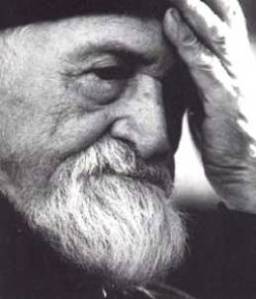 Unifying all of one’s spiritual tendencies into a single path provides one with great capability. But that is very difficult to achieve, as there are tendencies that will resist it. Therefore, an inner warfare starts off inside man, in order to defeat the disobedient [forces]. This is how Blondel describes that strategy:
Unifying all of one’s spiritual tendencies into a single path provides one with great capability. But that is very difficult to achieve, as there are tendencies that will resist it. Therefore, an inner warfare starts off inside man, in order to defeat the disobedient [forces]. This is how Blondel describes that strategy:
“There is in man a multiplicity of tendencies, of appetites that are more or less concerted or divergent, a «poly-psychism» that has been likened to a large «nation» governed by reason and will, in which one finds both submissive and disciplined citizens, and recalcitrant and dissident ones. What has been called ascesis and spiritual combat is nothing but the manifestation and method that can be applied in this inner «history», in this «militia hominis adversus et propter semet ipsum». (…) Because any definite and determined position will be countered (out of a spirit of contradiction) by the «party» of the displeased. (…) Any of our initial efforts is like a war declaration against the softness and shallowness of the living energies, which they, too, have an instinct of conservation and independence”. This awakens within us an “alien or hostile awareness and new wishes that rise against one’s will.” (L’Action, vol. II, pp. 194-196I).
The really tough fight starts only within those who have decided to lead a life that is more compliant with the godly commands.”
Fr. Dumitru Stăniloae, Note #1 re: “St. Maximus the Confessor” (Philokalia (III), Humanitas, Bucharest, 2004, p. 182)
